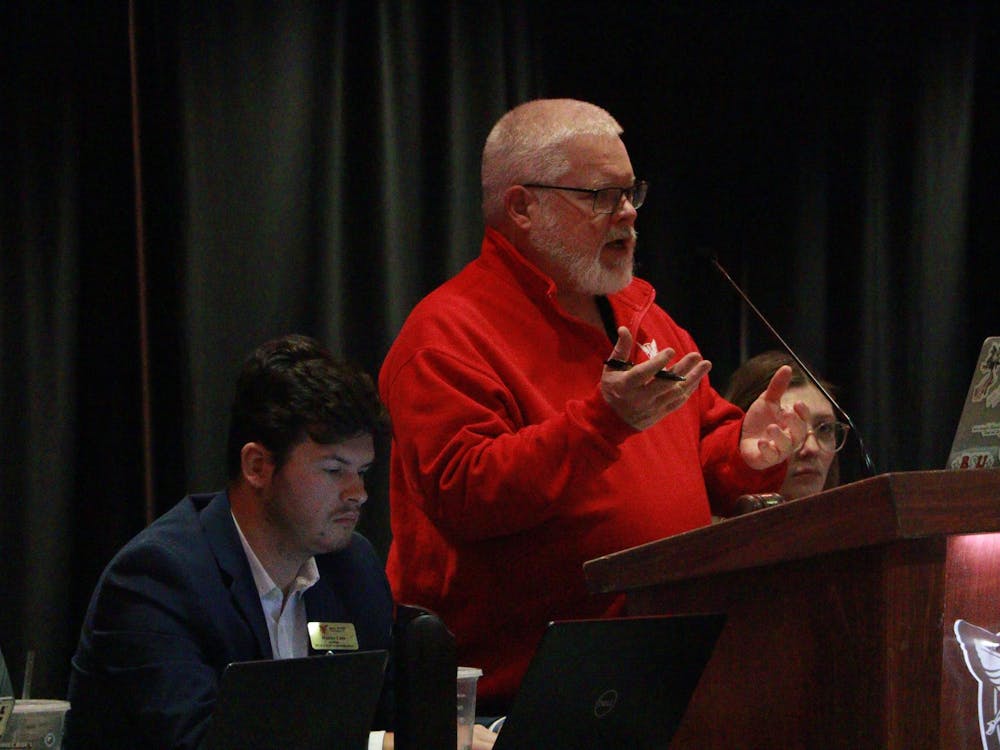Students returned to campus this week to find a beautified Neely Avenue, a Jamba Juice in the Art and Journalism Building and a new website created by University Computing Services to provide students with software downloads to keep them protected from cyber crimes.
A massive "phishing" attack kept the Enterprise Security Service Group busy this summer, and a Ball State student was arrested last week for allegedly having child pornography on his dorm computer.
Kevin Gingerich, who leads the university's computer security team, said students can do a lot to protect themselves.
"My biggest concern is security awareness," he said. "If someone willingly shares their information, we can't do anything about it."
UCS launched a new website this school year, bsu.edu/secureit, where students can find software downloads to protect themselves from malware and other types of spam. By mid-September, UCS will launch a program that allows students to view examples of spam currently plaguing other Ball State accounts, Gingerich said. It'll also start using extended validation certificates, which identify safe Web pages by highlighting the address bar in green; unsafe pages won't be highlighted in the address bar.
The university uses a filtering system called ForeFront Protection for Exchange to detect cyber crimes. UCS said it blocks 97 percent of spam that enters Ball State accounts.
In the basement of the Robert Bell Building, UCS security workers monitor the torrent of data that passes through the hundreds of servers that are hosted in the computer room. Security is tight. Besides Gingerich, there are only three other security employees, and they usually stay in their offices. They rarely venture into the computer room, which is accessible only with a key card.
Gingerich said the security team works closely with the systems and networking teams. In his office are three computer screens, which he uses to monitor activity on the network filtering system, and his desk is surrounded by filing cabinets.
He said UCS doesn't peer into the contents of e-mails, which would be an intrusion on students' privacy.
For that reason, perhaps, Jonathon Hike, the Ball State student accused of having child pornography in his dorm room, was arrested after a tip to police, not from the efforts of the Ball State computing security team.
Hike, 19, was charged with two counts of possession of child pornography Aug. 16, said Sgt. Rod Russell of the Indiana State Police.
UCS was not involved in the 10-month investigation that led to Hike's arrest, starting with a "CyberTip" in October. The investigation was conducted primarily by state police Detective Chris Toney, with help from Detective Reba Grass of the Ball State University Police Department. Nine images involving child pornography were transmitted from a Flickr account traced to a computer located at Ball State on Oct. 19.
Director of Public Safety Gene Burton said it is rare for a student to be arrested for child pornography.
Hike has been temporarily suspended from classes pending a campus judicial hearing, university spokesman Tony Proudfoot said.
"We don't track content," Proudfoot said. "If we have cause to monitor a certain computer or user, we will. We don't monitor or filter content. It's a standard."
Instead, UCS focuses on safeguarding against computer hacking and phishing. Phishing means soliciting a student's account information. Gingerich said the phishing attack on student accounts in June was one of the biggest he's seen at Ball State.
Usually one or two student's accounts are compromised each month, he said, and UCS is able to contain the damage quickly because of network filters. After sites have been identified, spam from those sites is blocked, he said.
As security team leader at UCS, Gingerich is in contact with cyber crime prevention agencies at other state universities. He said some of them dealt with similar phishing attacks this summer as well.
Maintaining network security is a constant battle UCS is undertaking for the students at Ball State.
"Battling phishing attempts and spam is never ending," Gingerich said.





